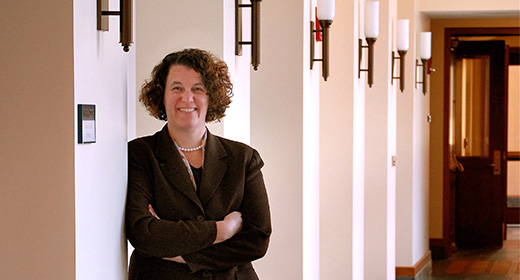
A $2 million grant from the U.S. Department of Education's Institute of Education Sciences (IES) will allow Ford School faculty and colleagues at partner institutions to launch a five-year study on the impact of a new Tennessee policy that allows students to earn college credits for advanced math courses taken in high school.
"Our study will provide critical information to educators across the United States as they consider expanding these programs," said Susan Dynarski, a public policy, education and economics professor at the University of Michigan and co-director of the Education Policy Initiative at the Ford School.
The study is co-led by Dynarski, Steven Hemelt, an assistant professor of public policy at UNC-Chapel Hill, and Nathaniel Schwartz, director of the Tennessee Department of Education's Office of Research and Policy.
"The transition to college is often rocky, with most students required to take remedial math. Dual-credit courses promise to smooth this transition by exposing students to rigorous, college-level math," Dynarski said. "This study will show whether this approach works, and for what kinds of students."
The study will use a randomized, controlled trial approach, with over 100 public high schools across the state of Tennessee randomly assigned to a treatment or control group. Students in schools in the treatment group have the opportunity to enroll in re-designed dual-credit courses.
High school teachers in treatment schools and college instructors of the same course such as college algebra meet during the summer prior to the school year to better align the high school and postsecondary versions of the courses' curricula. Students in these re-designed courses have the opportunity to earn credit at any of Tennessee's two and four-year public colleges, based on their performance on an end-of-course exam.
Researchers will track students through high school and into college and look at how the dual credit policy affected their enrollment in other high school math classes and how it influences their college choice, enrollment in remedial courses, major and other measurements.
